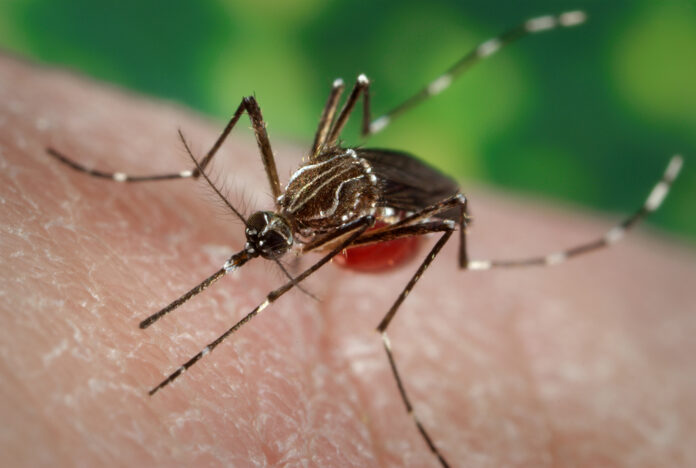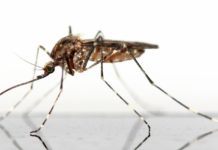
History has well documented the fact that mosquitoes have plagued mankind for thousands of years and they continue to be a growing threat in much of the world today. In 1821, when the United States officially took control of Florida, Virginia Congressman John Randolph declared it “a land of swamps, of quagmires, of frogs and alligators and mosquitoes. A man, sir, would not immigrate into Florida – and no, not from Hell itself.”
Development continued to be very slow in Florida for the next 100 years while mosquitoes remained a major detriment as both a nuisance pest and a major disease vector. There were many large epidemics of yellow fever, dengue fever and malaria in Florida during this period with many associated deaths. The Florida Keys were often at the center of these disease outbreaks. In the early 1920s a terrible epidemic of dengue fever began in Miami and swept through the entire state, infecting more than 200,000 people when the state’s population was just over 1 million.
After this disease outbreak, things began to change, when the Florida Legislature provided for the establishment of mosquito control districts after their approvals by local referendum. The first such district formed was in Indian River County, which was part of what had earlier been named Mosquito County. In 1922, a group of dedicated individuals assembled in Daytona Beach to form the organization that is known today as the Florida Mosquito Control Association (FMCA). In 1949 the forerunner of what is now the Florida Keys Mosquito Control District was created to control our 40+ tropical mosquito species and their diseases. Mosquitoes and the diseases they carry have slowed and continue to slow social and economic development in many tropical and subtropical climates of the world today, but no longer in Florida or the Keys.
For 100 years, Floridians and our tourists have greatly benefited from the hundreds of dedicated mosquito control scientists and technicians who work to make our lives more comfortable and safer from the world’s deadliest animal. Mosquito control has continually progressed in Florida and is now a plethora of technologies, encompassing elements of every physical and life science and at the same time, improving our quality of life, helping protect public health and our fragile environment. It is important for us to remember that it has not always been this way.
Today, mosquito control in Florida consists of 57 unique districts. Some are county-managed and some are managed by elected commissioners and staff in special taxing districts such as in the Florida Keys. Some of the larger Florida districts have become world-class technology centers like in the Keys. What began as a public awareness campaign in 1922 has now evolved into a complex science with all Florida’s districts working together under the FMCA umbrella to make Florida the leading state in mosquito control. The Florida Keys Mosquito Control District has helped lead this effort.
With Florida’s growing success in mosquito control, we have seen our industries, including tourism, increasingly flourish. We are certainly not perfect, but with Florida property values at an all-time high and the state now a year-round tourist destination with an attractive business environment, mosquito control is an important part of that success story and a good value for your tax dollars. Mosquito control usually stays in the background, doing our job, but it is important for you to know we are here and working hard every day.
Phil Goodman
Chairman of the board of commissioners
Florida Keys Mosquito Control District
























